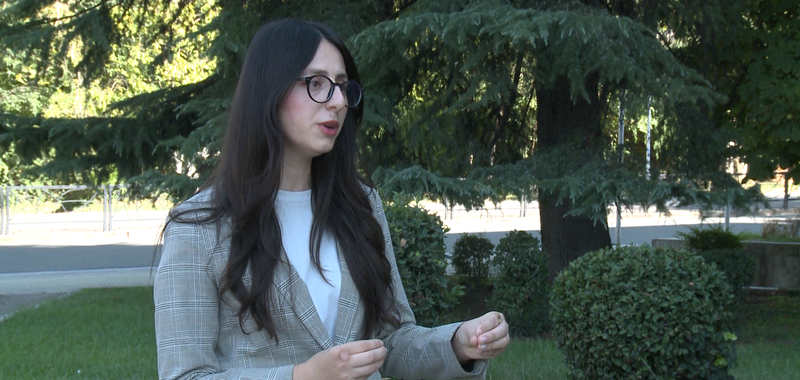Can the EU impose "drastic" measures on Beijing? Trump has called for 100% tariffs on China
US President Donald Trump has demanded that European countries impose tariffs of 50% to 100% on China as part of a joint strategy to counter Russia's invasion of Ukraine. He argued that these high taxes, along with an immediate halt to purchases of Russian oil, would help end the war.
Trump stressed that China has a strong grip on Russia and these tariffs “will break that grip.” His demand came at a time when transatlantic partners were trying to increase economic pressure on Moscow to force President Vladimir Putin to sit at the negotiating table.
However, Brussels responded with a clear rejection of the demand for such tariffs. A European Commission spokesperson said that any new measures in the 19th sanctions package would be in line with EU rules and procedures.
There are at least three main reasons why the European Union will not follow Trump’s radical proposal. First, the EU distinguishes between tariffs and sanctions. Tariffs are trade tools used to address specific issues such as unfair competition, while sanctions are foreign policy tools. The European Commission imposes tariffs based on in-depth investigations that take months and comply with World Trade Organization (WTO) rules.
On the other hand, Trump does not differentiate between tariffs and sanctions. He has used tariffs for various purposes, such as reaching favorable agreements or encouraging American companies to bring production back home.
Second, the EU cannot find political consensus to launch such a radical attack on China, one of its largest trading partners. This was clearly seen in 2024, when Brussels' proposal for tariffs on Chinese electric cars faced wide divisions in the vote: 10 countries were in favor, 12 abstained, and 5, including Germany, opposed.
The bloc is also acutely aware of the risks. China has a history of reacting harshly to foreign decisions it sees as damaging to its interests. For example, after tariffs on Chinese cars, China launched investigations into European imports of pork, milk and brandy, which Brussels deemed unjustified.
Following Trump's proposal, Beijing warned that imposing 100% tariffs would be "high risk." The EU is unlikely to make such a radical decision, especially given that Trump's policy changes frequently, leaving Europe in a precarious position.

"Elon Musk's statements provoke violence"/ Britain criticizes billionaire's speech during anti-immigrant protests
The British government has sharply criticized statements by American billionaire and Tesla CEO Elon Musk during demonstrations in London against illegal......

"Energy, Albania's most advanced chapter with the EU"/ Alia: Group Chapter 4 less voluminous, but more technical
The more chapters are opened with the European Union, the more Albania's work increases to align its legislation with that of the Union, implement this......

Strengthening the position of Albanian women in politics and diplomacy/Gradual increase in representation in key institutions and sectors
The role of Albanian women in political, economic and social life is taking on increasingly visible dimensions, showing a gradual increase in representation......

Albanians consumed twice as much carbonated drinks/ In 7 months, their imports reached 42.4 thousand tons or 4 billion lek
The latest figures on the import of carbonated drinks show a rapid transformation in the consumption habits of Albanians. “Scan Intel” has obtained figures......

Greece, the third poorest in the EU/ 14% of the population lives in conditions of material and social deprivation
According to Eurostat figures, Greece recorded the third highest percentage of the population (14%) living in a state of deep material and social deprivation......

The Assembly approves the new composition/ The Council of Mandates and Immunity and the Council of Legislation are formed
In the first plenary session this Tuesday, the Assembly has formalized the new composition of the Council for Regulation, Mandates and Immunities, as well as......

Poll: Albanians want security, strong support for NATO/ 69% of our citizens are in favor of increasing defense spending
In the latest NATO survey for 2025, conducted in all 32 member countries of the Alliance, Albanian citizens were among the most supportive people, and......

Patosi Turn Road – Fratar/Balluku: Works have reached 40%, easing traffic
Works on the Patosi Bend – Fratar segment have reached 40% and are currently continuing with the construction of works of art, scarification of the existing......



















